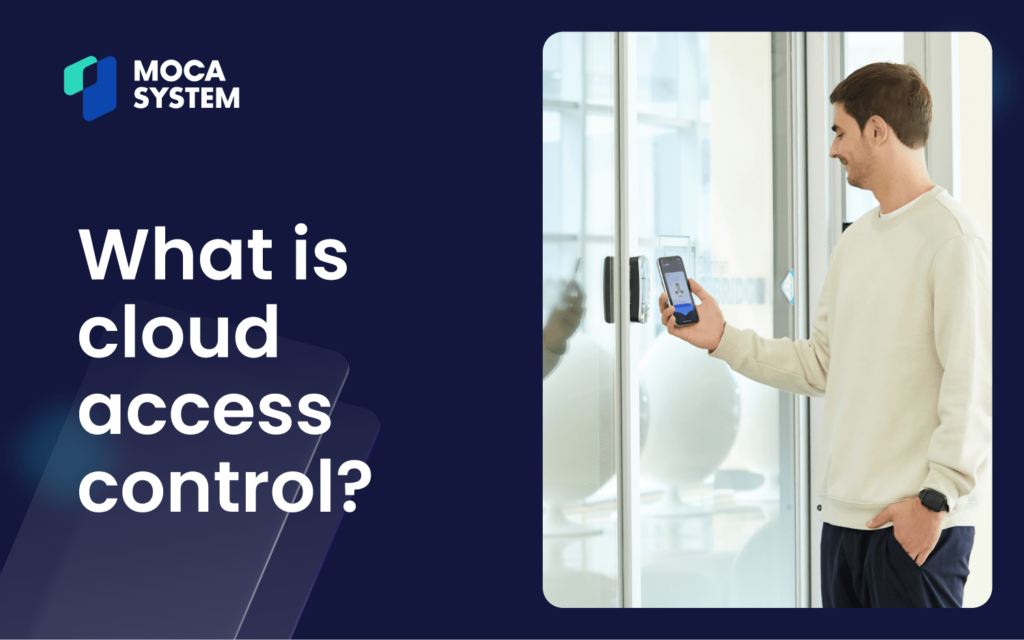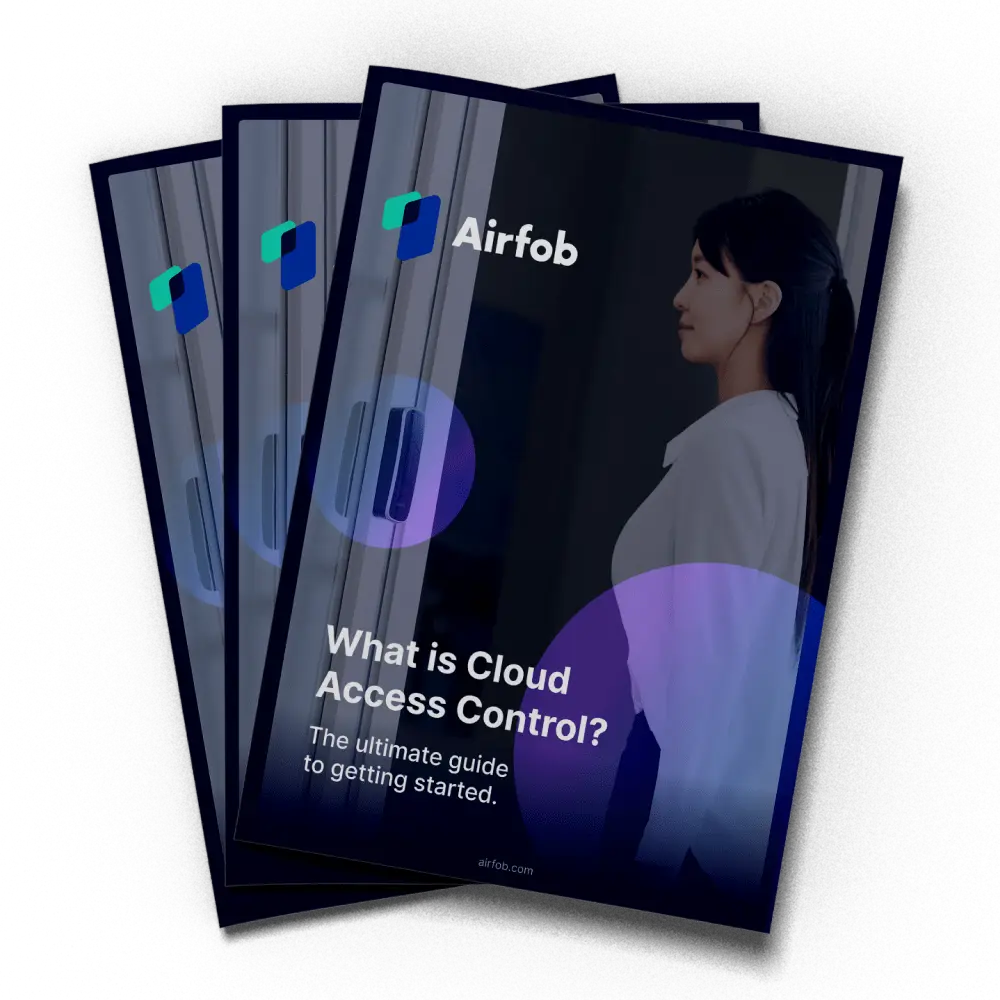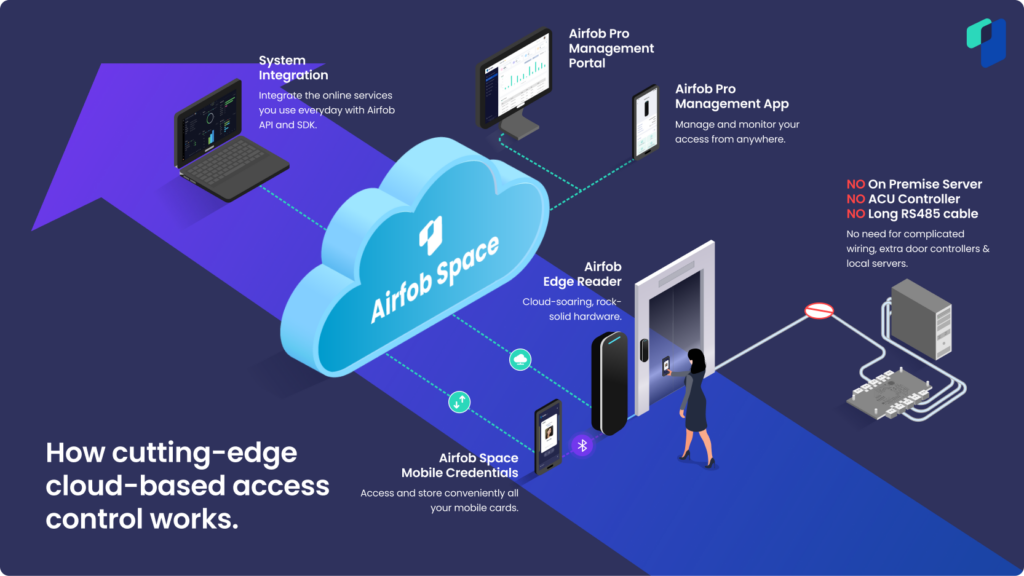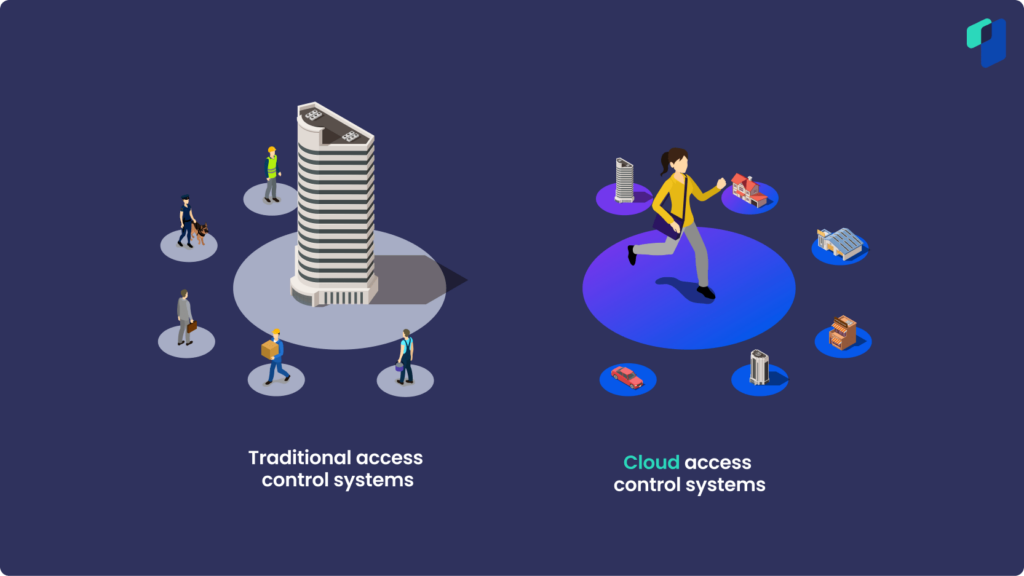What is cloud access control?

Cloud-based physical access control modernizes how we manage and monitor access to physical spaces using cloud technology. Unlike traditional systems that depend on onsite hardware and software, cloud solutions utilize the cloud’s flexibility to enhance security and efficiency.
Understanding cloud access control.
In these systems, user credentials, access policies, and activity logs are centrally stored and managed in the cloud. This centralization simplifies administration and boosts security by allowing oversight of access rights across multiple locations from any device with an internet connection.
Ideal for organizations with dispersed or remote operations, cloud access control is widely used by businesses with multiple branches, co-working spaces, and institutions like universities where user turnover is frequent. These systems are scalable, enabling organizations to easily modify access as their requirements evolve.
Overall, cloud-based physical access control offers more adaptability, scalability, and security, making it a superior choice for contemporary organizations.
In a typical cloud access control system, digital locks or readers are installed at entry points like doors, turnstile gates, or elevators. People interact with these locks and readers using access credentials, such as mobile access cards stored on their smartphones or RFID cards, which function like digital keys.
These keys are managed centrally through a system hosted in the cloud. Administrators can manage this system remotely, using a web management portal or a mobile app to grant or revoke access as needed.
This approach not only improves security but also provides flexibility and convenience for efficiently managing access rights.

Andrew Kim CEO at MOCA System
Over the years, we've witnessed monumental shifts in the way businesses manage and secure their spaces, evolving from siloed systems with on-premise servers to highly-connected cloud-based solutions. As the technology continues to advance, it will not only make spaces more secure and access more convenient, but make possible entirely new business models.
Cloud access control: a new paradigm for user experience?
There are two concepts you must understand when it comes to cloud access control:
- Authentication verifies the identity of users seeking access to secured spaces.
- Authorization determines if the authenticated user has access permission based on roles or access levels.
Once authenticated, individuals undergo authorization checks to confirm they have the necessary permissions. Authorization policies establish access rules, specifying which individuals can access different spaces, operate machines, office devices, or receive services.
Instead of focusing solely on securing physical spaces with predefined rules and permissions, modern access control systems prioritize the individual’s identity over physical location in determining access rights. This shift marks a significant evolution in security and authentication practices.
In the past, access privileges typically linked to specific physical locations within a facility led to compartmentalized systems. Modern systems, however, allow for seamless access management across various locations by prioritizing the individual’s identity. This flexibility enables individuals to maintain consistent credentials, regardless of their physical location.
The rise of mobile access control, increasingly popular due to its convenience, further supports this shift. Since smartphones have become indispensable for functions like communication, authentication, and payment, using them as digital keys or mobile credentials is a secure and logical solution. With most people already equipped with smartphones, there is no need for additional physical tokens, making mobile credentials a practical and secure access option.
The cloud-based mobile access control market is a new industry of the Fourth Industrial Revolution that is expected to grow at an average annual growth rate of more than 10% every year, and MOCA System’s Airfob Space enables property managers to conveniently manage access anytime and anywhere. Airfob enables them to operate their spaces efficiently, as well as reduce overall operating costs through easy visitor management and the elimination of physical cards, enabling the simple and straightforward digital transformation of the spaces where we live, work, and play.
FREE EBOOK
Want to learn more about access control?

Download your
free eBook!
This eBook is not only for security experts. It’s also for business owners and anyone interested in the future of access control.

